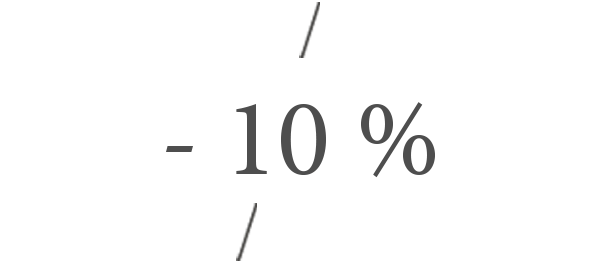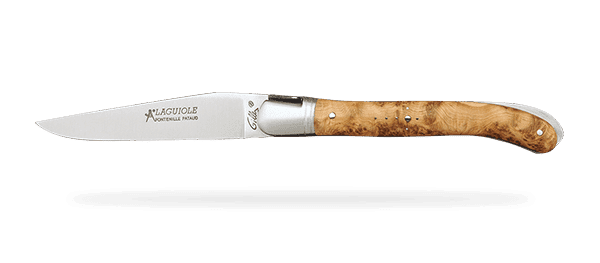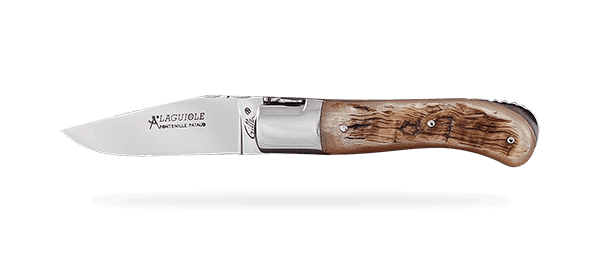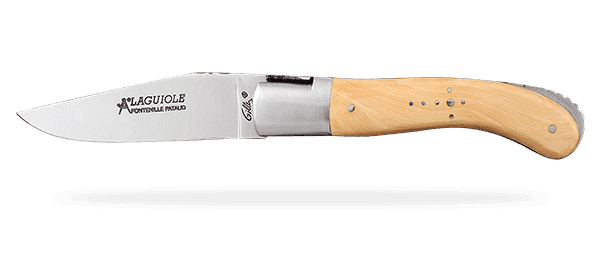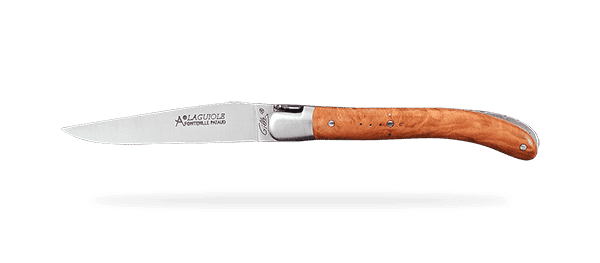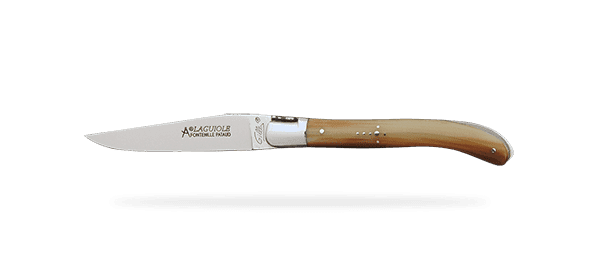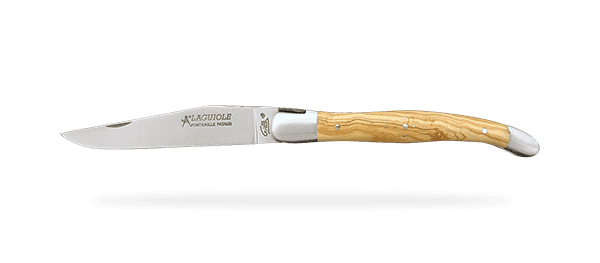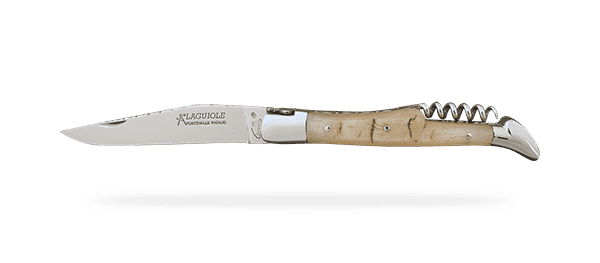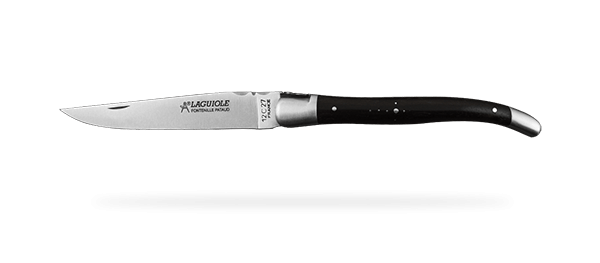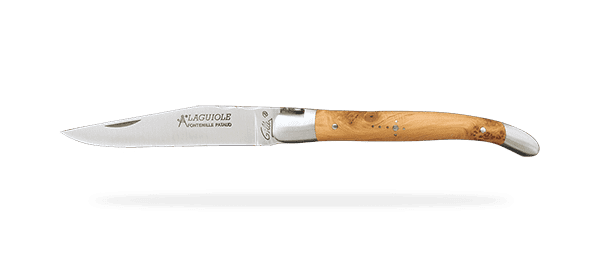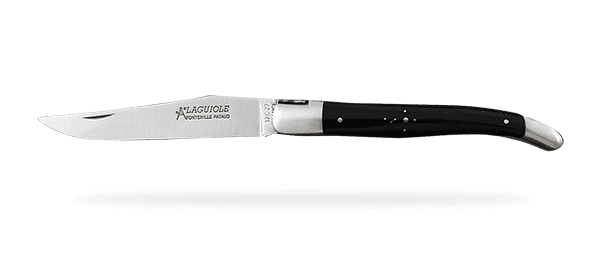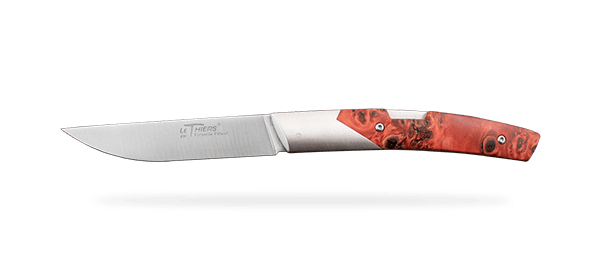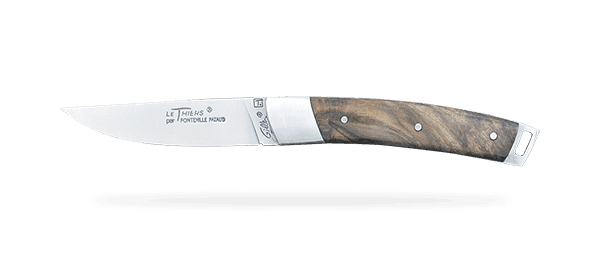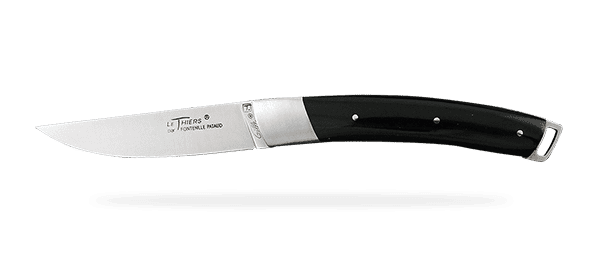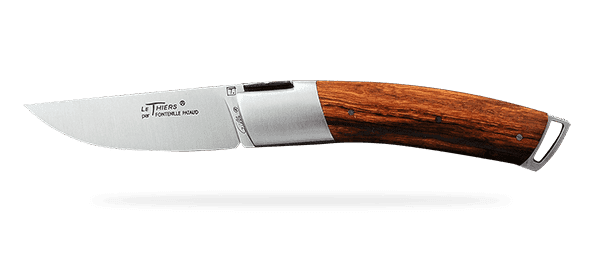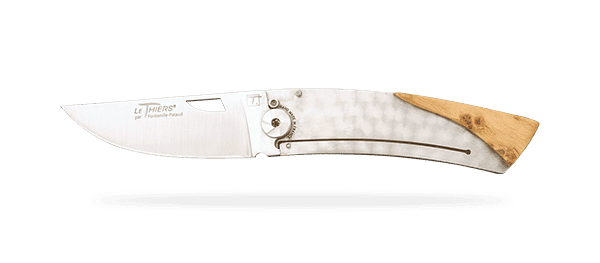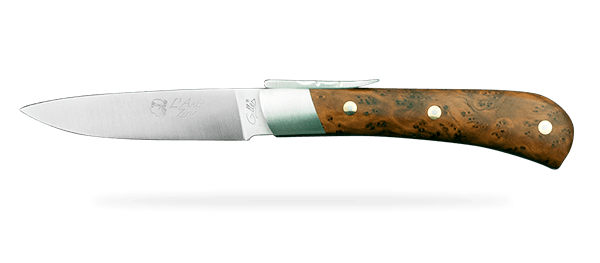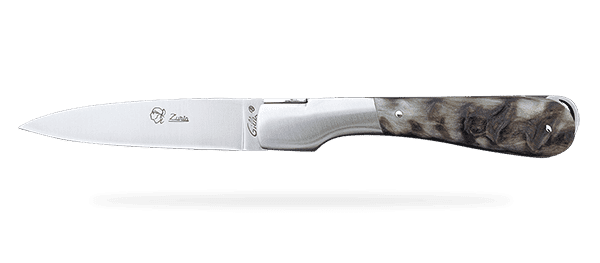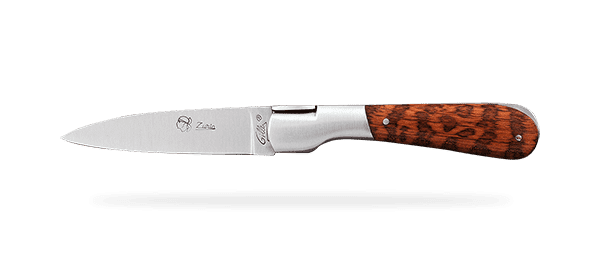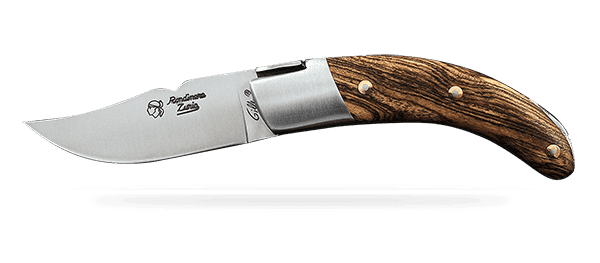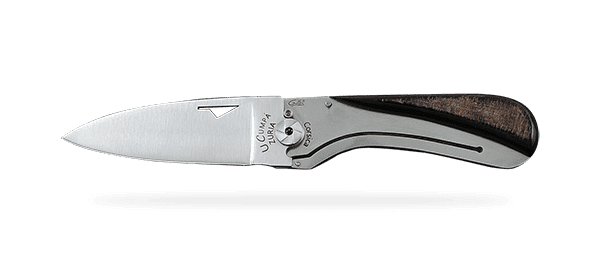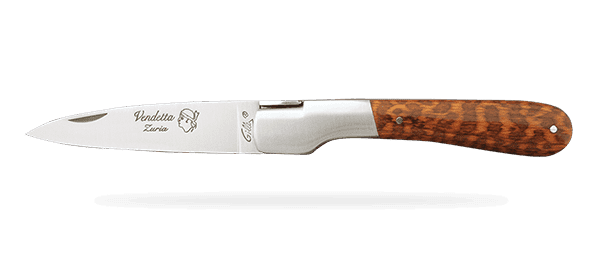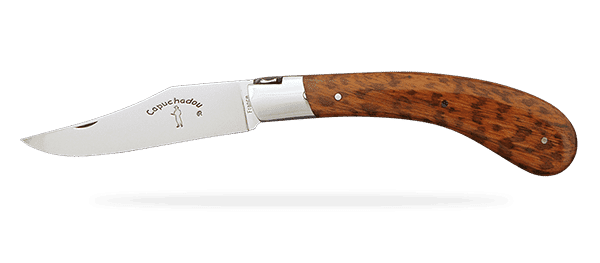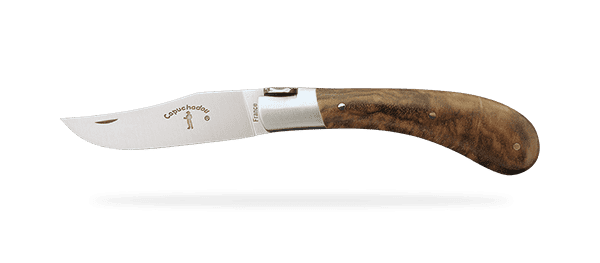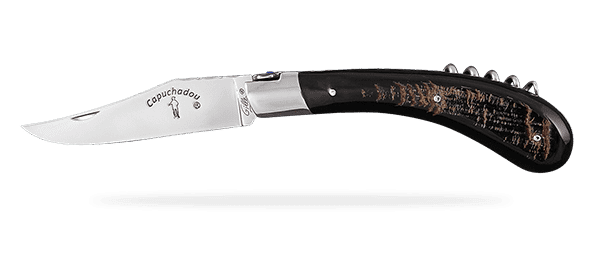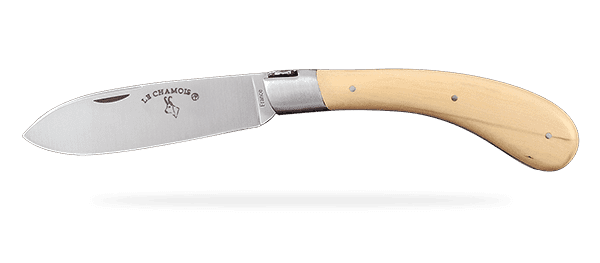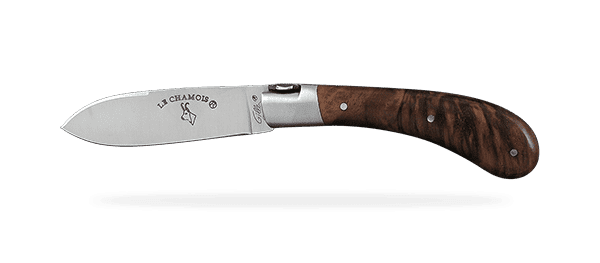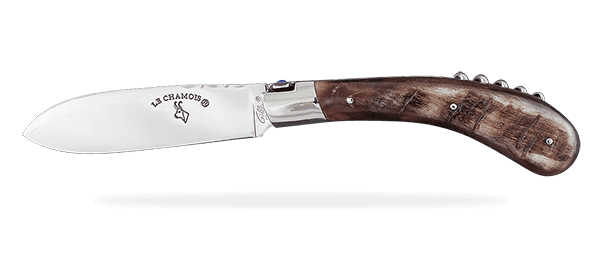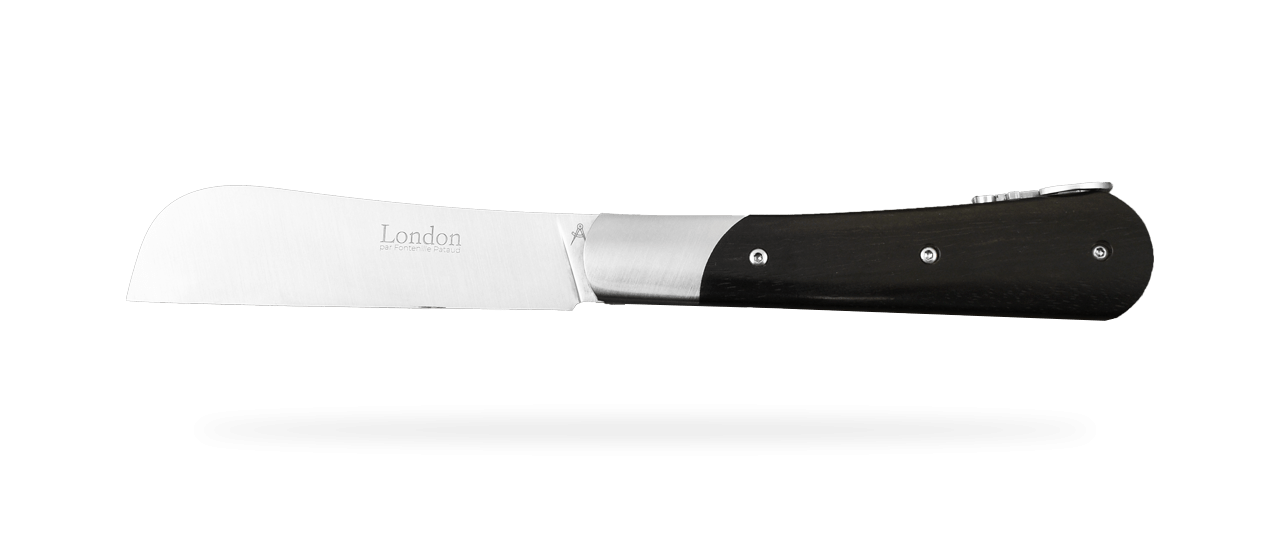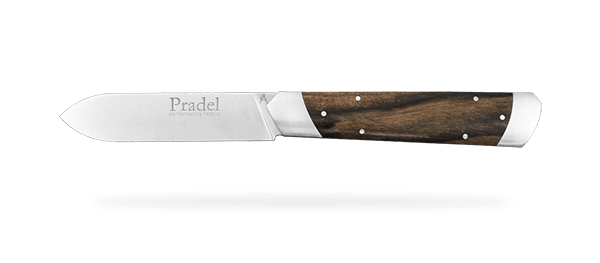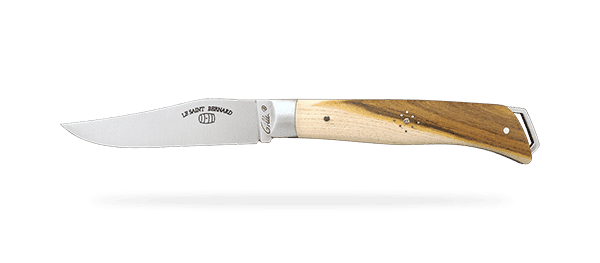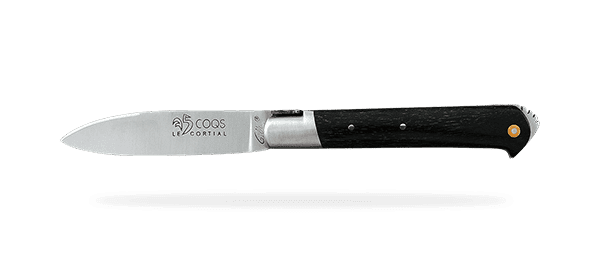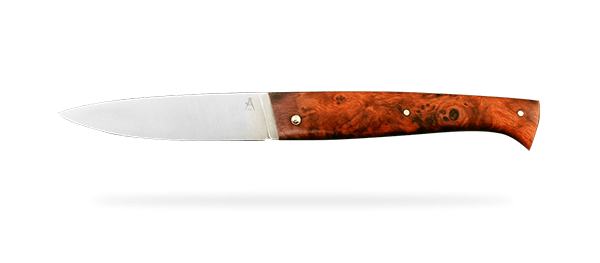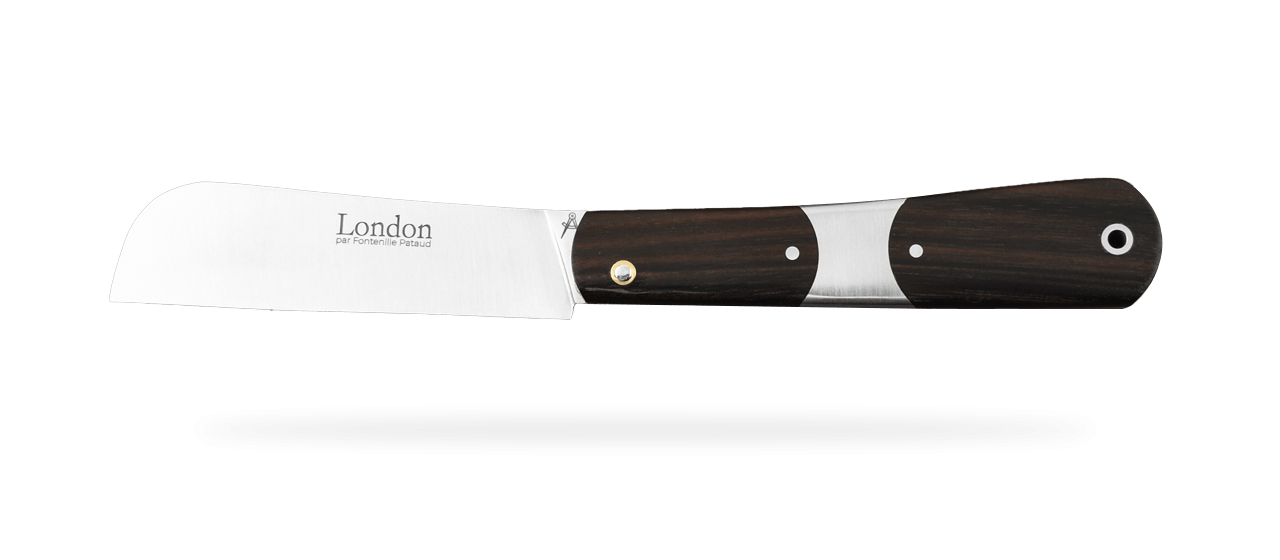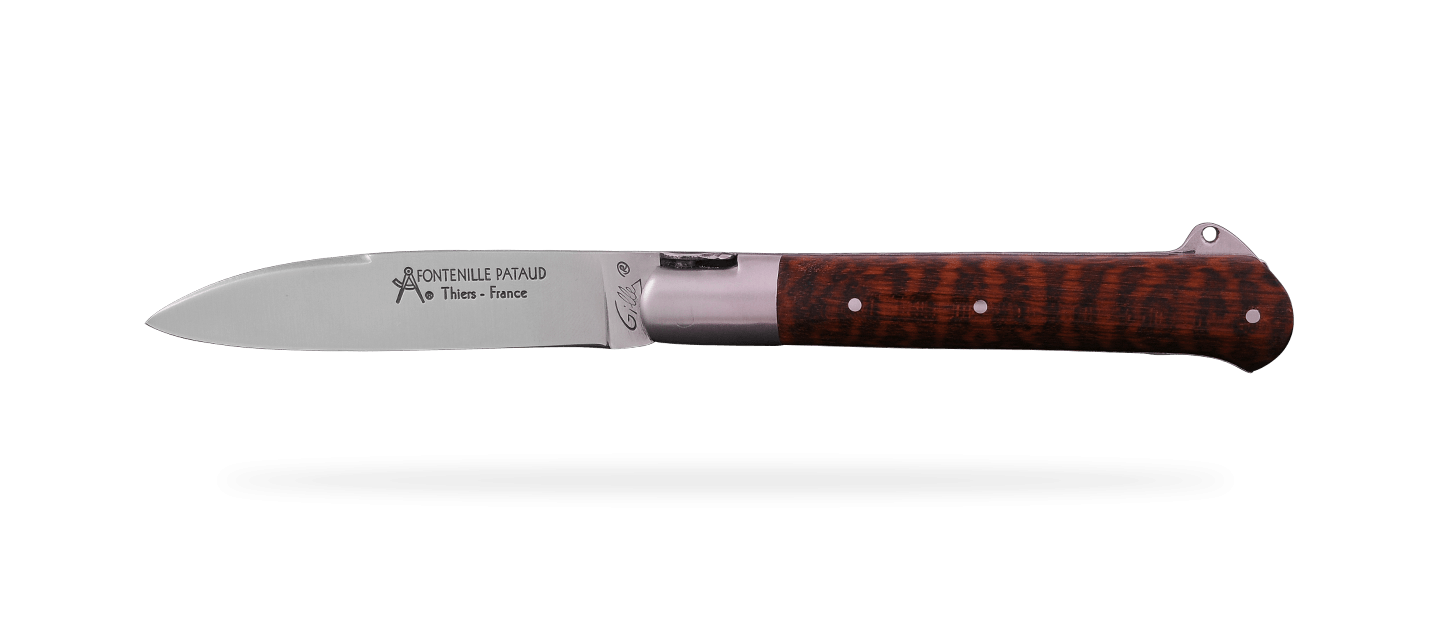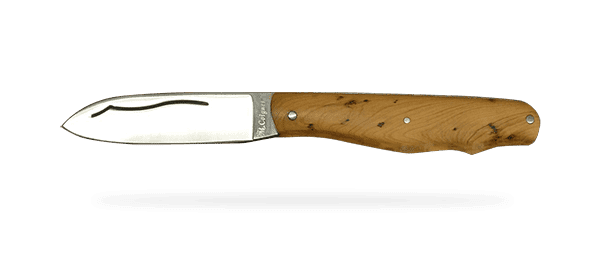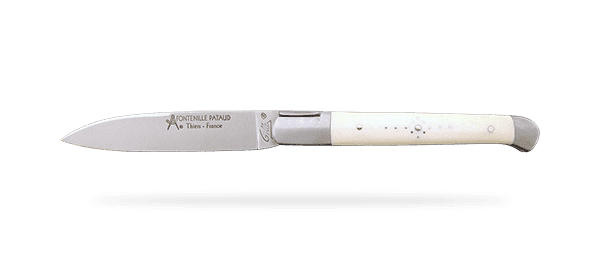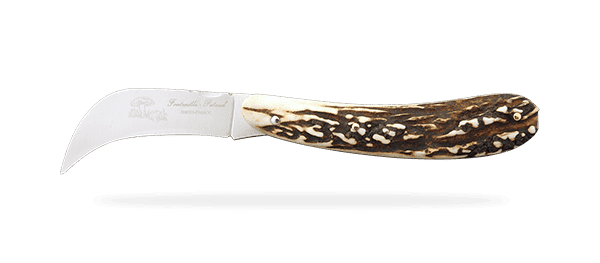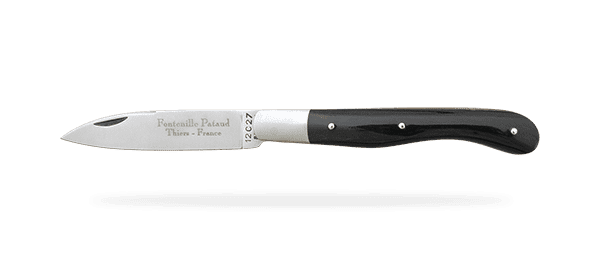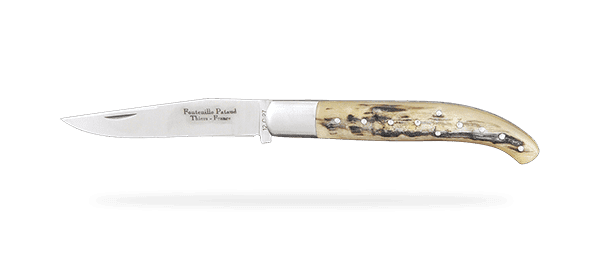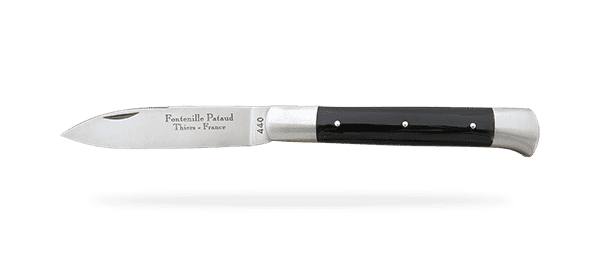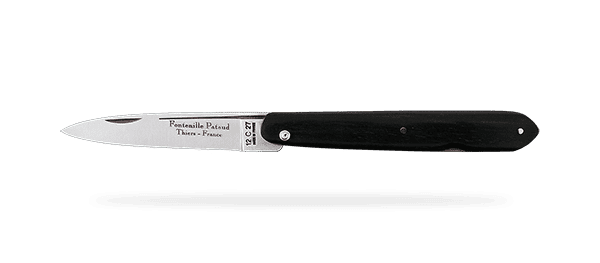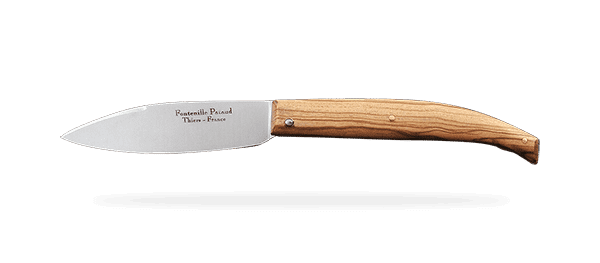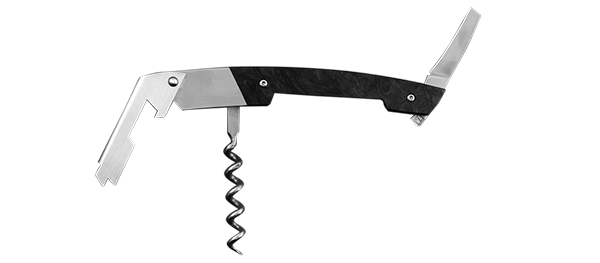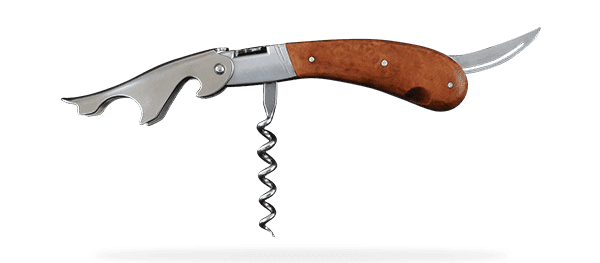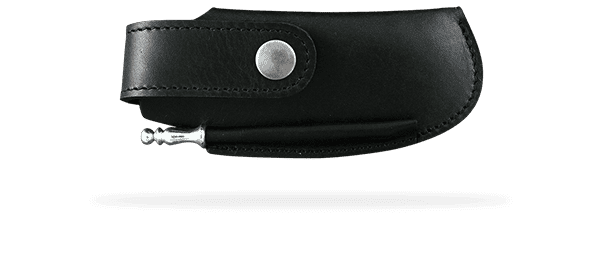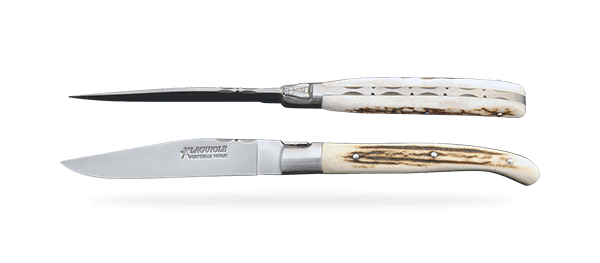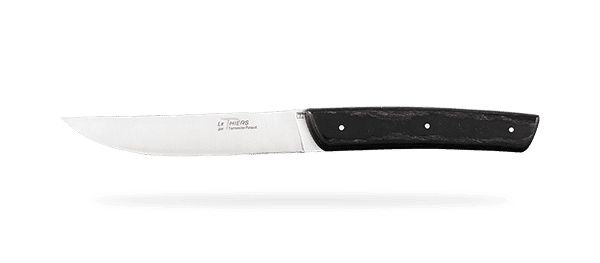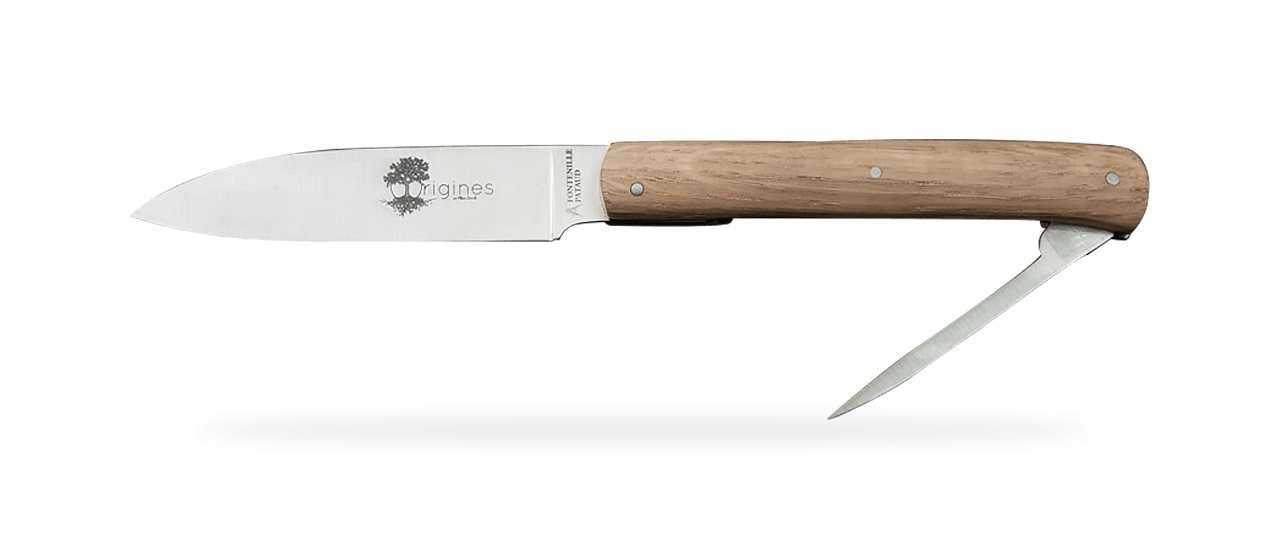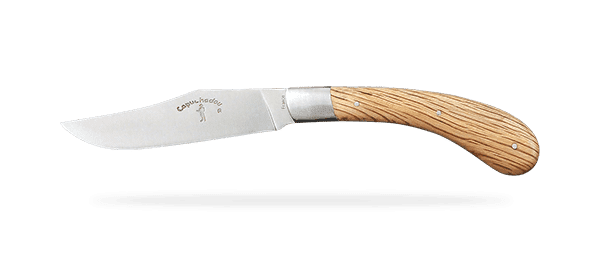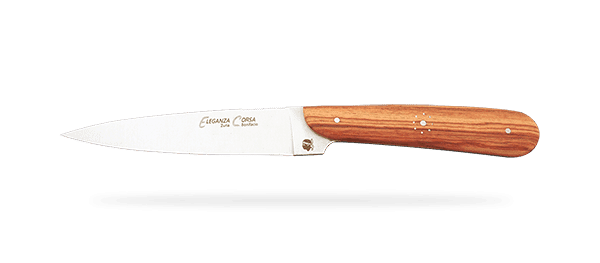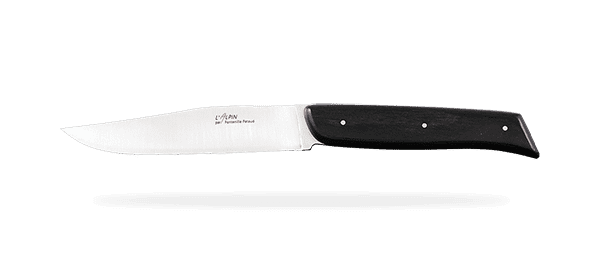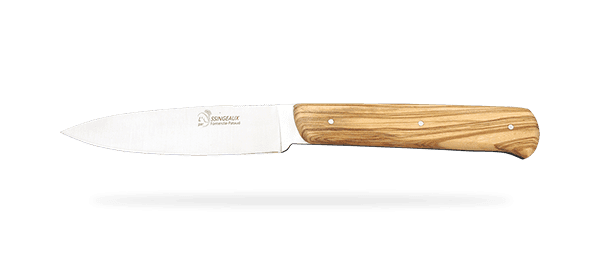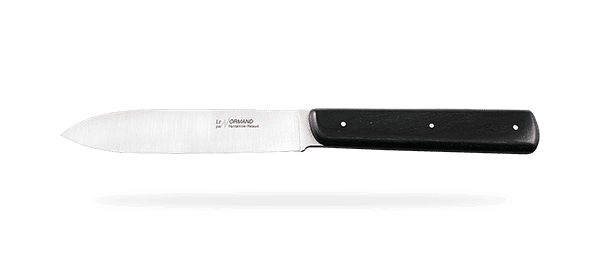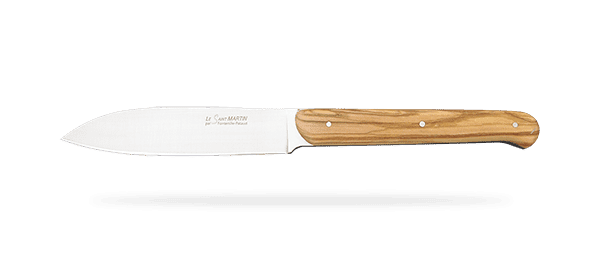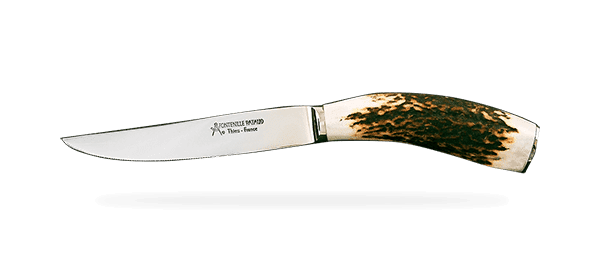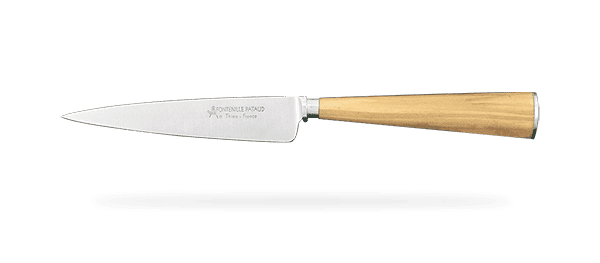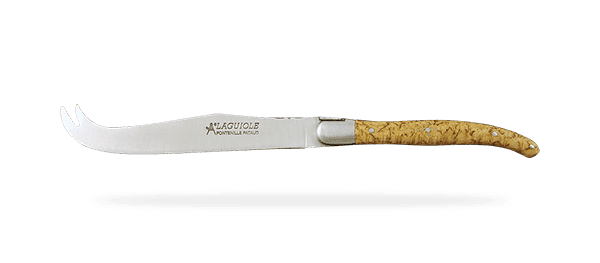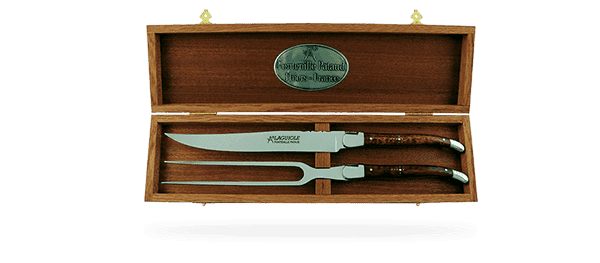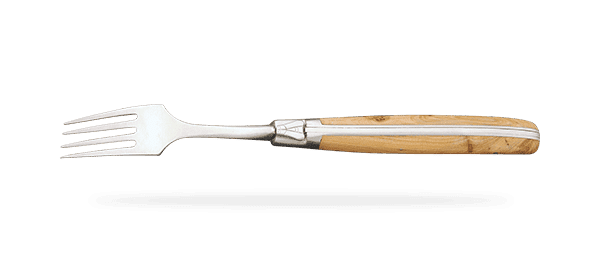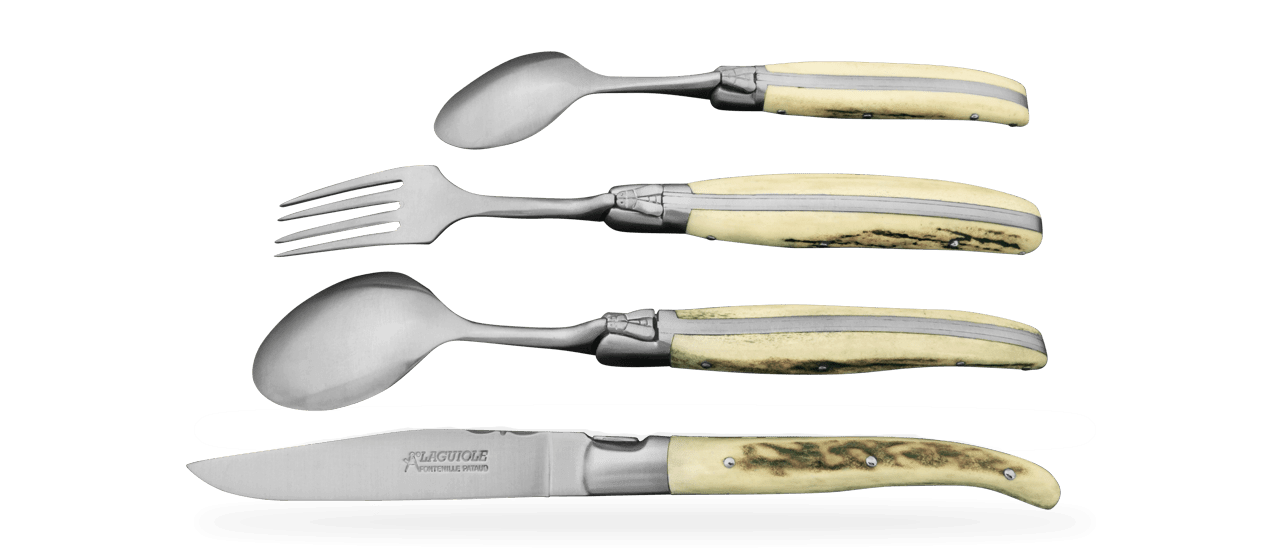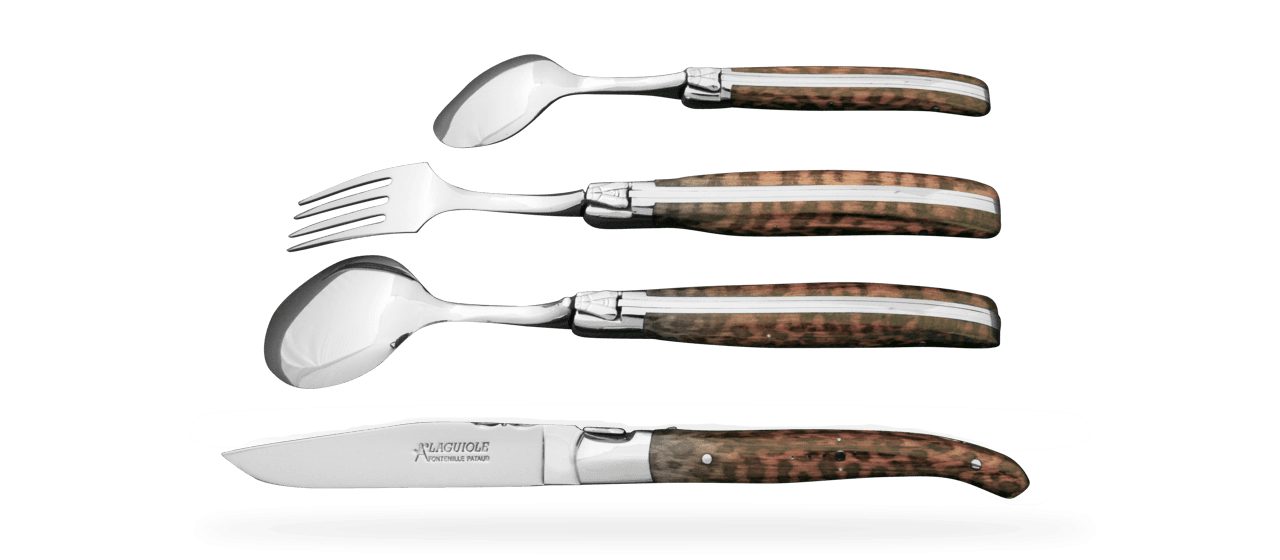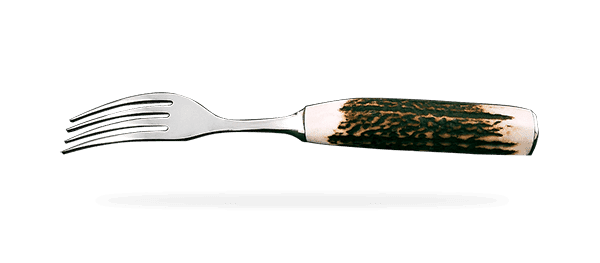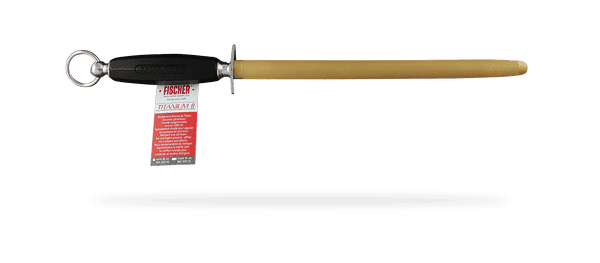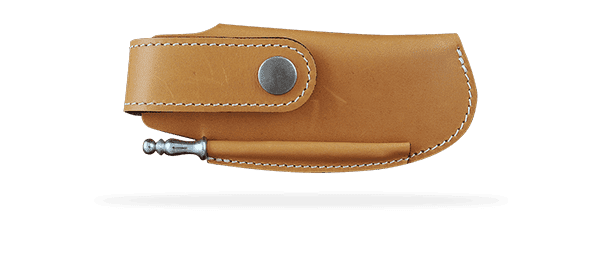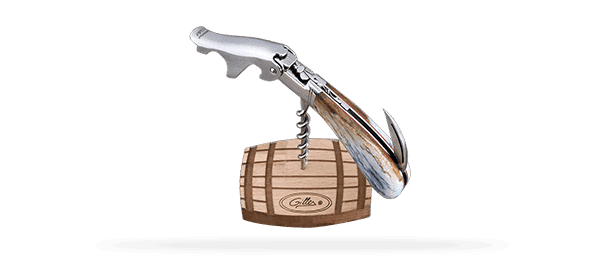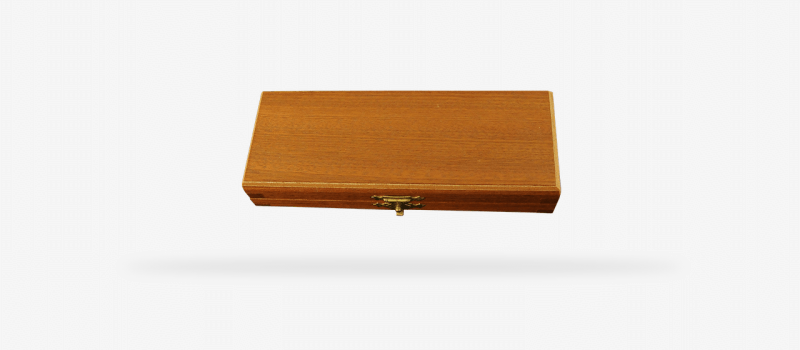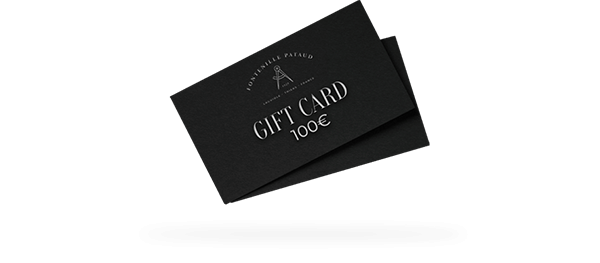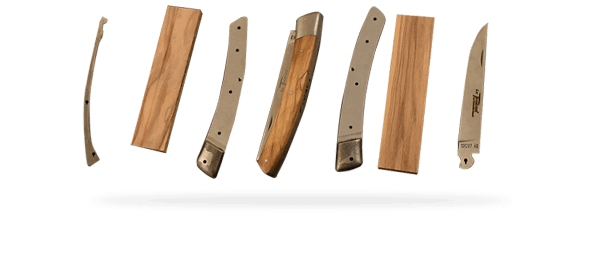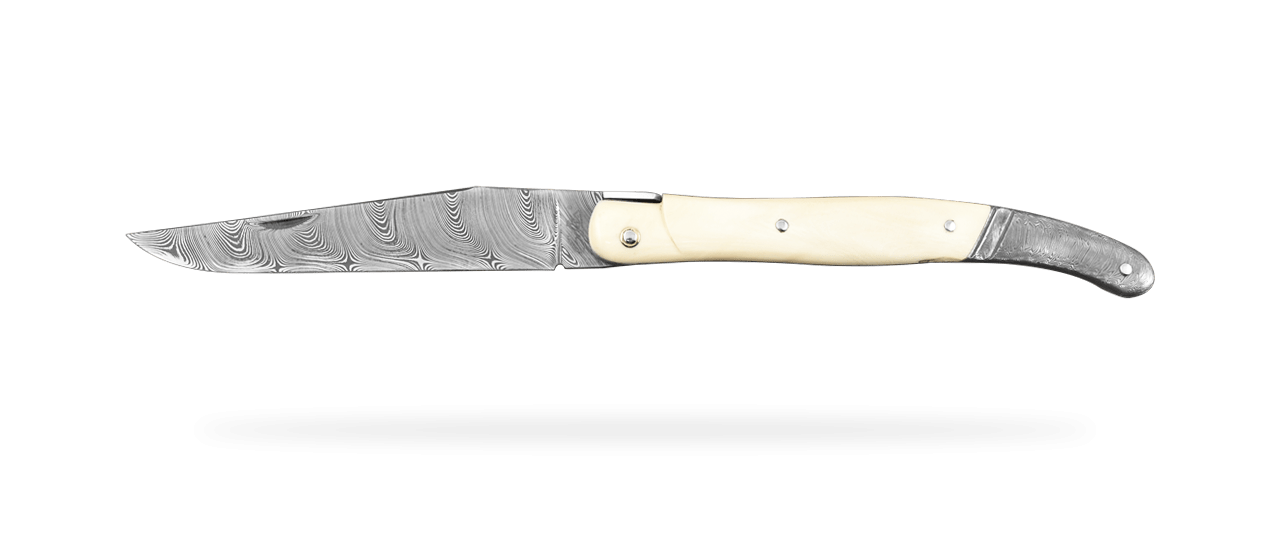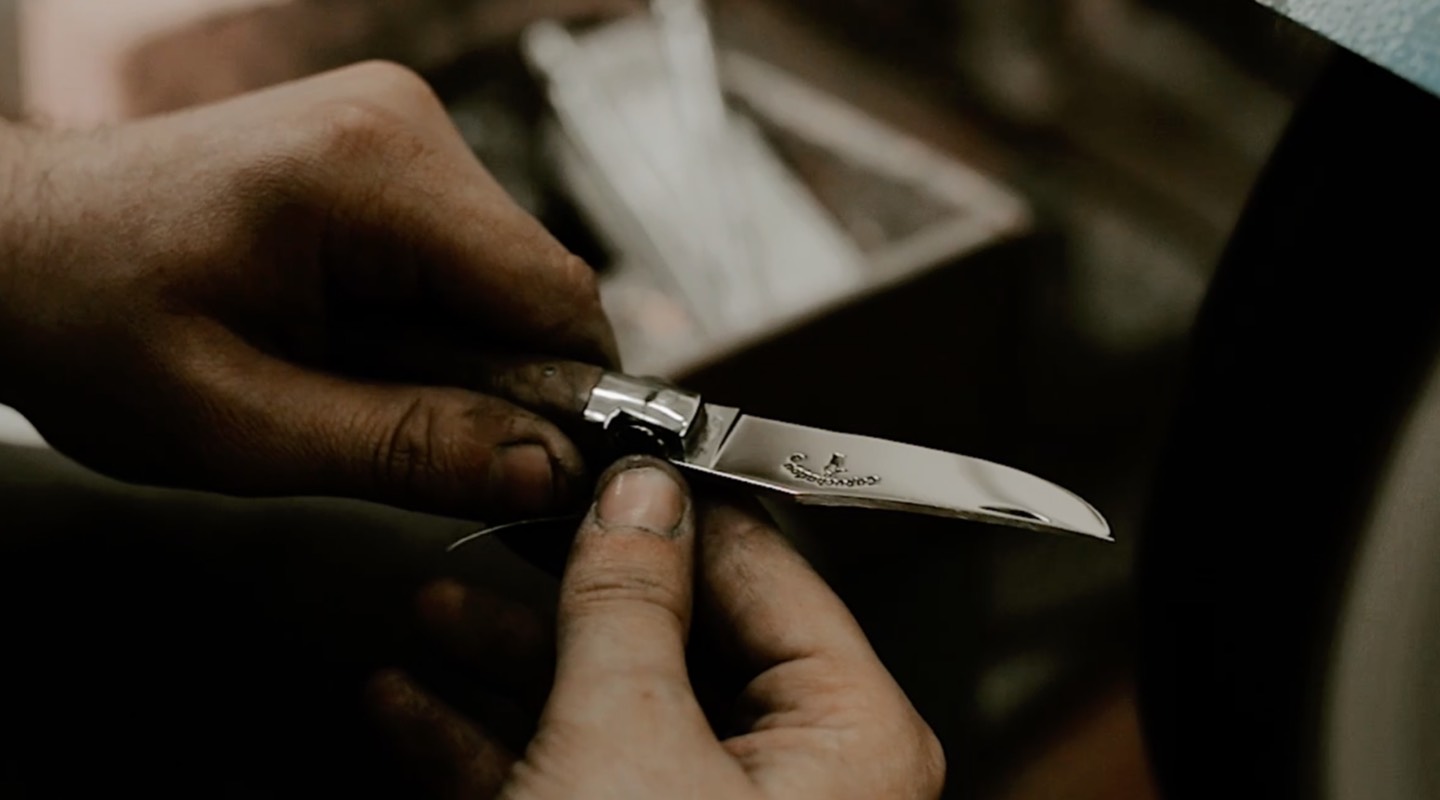Our classical steels
We remind you that the advice and descriptions given are only valid for normal use of your knife. It is not a screwdriver or a can opener! And of course, washing in a dishwasher is strongly discouraged, as it will damage both the blade and the handle.
To maintain your blade, a simple wipe is enough. For the maintenance of the mechanics, a few drops of specialized oil are enough. In addition, beyond a regular sharpening, a more "intensive" sharpening is recommended once a month (with a whetstone or a diamond sharpening steel according to your convenience).
There is no secret, for your knife to keep its splendor and efficiency over time, it must be maintained.
12C27 and 14C28N steels
Or Sandvik steels, are perfect for standard and carefree use.
We recommend the choice of 12C27 stainless steel, which is offered by default on most of our knives with a hardness of 56/57 HRC.
We also offer by default the new 14C28N stainless steel on many knives with a hardness of 58/59 HRC. 14C28N is the superior version of 12c27, with better edge retention and superior sharpness.

These steels have several advantages:
- the hardness of their blade (from 57HRC);
- Corrosion resistance - your blade will be more resistant to humidity, thus avoiding rust stains;
- Easy maintenance - a shot with a sharpening steel and it's done!
- It is hygienically compliant for food use;
But the advantages are not without their disadvantages:
- Compared to a carbon steel blade, you'll need to sharpen your 12C27 blade more frequently. This is the downside of its resistance to moisture.
- Its cutting precision will also be somewhat lower than carbon steels.
XC75 steel
XC75 "carbon" steel, or 1075 in the U.S., is a non-stainless and special steel. But it does have some interesting advantages such as flexibility, holding power and high quality.
On the plus side:
- it develops a patina with use - giving your blade a unique look;
- Sharpening is simple and easy, ideal for beginners;
- It is very resistant and gives an excellent quality edge;
- It is hygienic and suitable for food use;
It is therefore a steel that will undoubtedly seduce fans of traditional knives, since it is a bit "the steel of our grandfathers".
On the other hand,
... and despite its resistance, XC75 is a very sensitive steel. It is therefore essential to protect the blade well if you want to avoid corrosion. Not to mention, and like any blade, regular and assiduous maintenance!
It is also more suitable for knives with small blades (it is commonly found on survival and outdoor knives).
RWL34 steel
RWL34 steel is a steel manufactured by Damasteel®, a Swedish company, which is known for its perfect mastery of powder metallurgy. This very particular technique consists in making a steel by sintering contrary to the traditional technique by fusion.
Sintering consists in heating a powder until it melts in order to make an alloy of different steels. This allows to obtain very technical steels: better mechanical resistance, easier to machine, high stability...
The RWL34, well known and appreciated by enthusiasts, takes its name from a famous and revolutionary American knife maker, Robert W. Loveless. He is known in the industry for having designed and popularized the hollow point blade, as well as the use of tapered shafts, among other things.
We offer the RWL34 on the vast majority of our models because it is currently the best performing European powder metallurgy steel.

The qualities of RWL34 :
- it is stainless and therefore has a very high resistance to humidity;
- it is easy to maintain with the same ease of sharpening as the 12C27;
- it guarantees a long cutting life thanks to its hardness (60/61HRC);
- no need to sharpen your blade as often as for 12C27! Its durability will be your best ally.
- It complies with the hygiene standards for food use;
So if you use your knife frequently, for example every day at the table, the RWL34 will prove to be the ideal steel.
